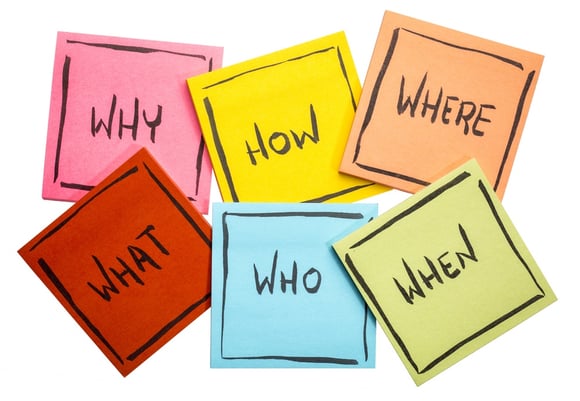The 5 W’s. Who, what, where, when, why and how. These are the questions journalists ask when they are researching their next story. But in the Change Management and implementation worlds, asking these same questions can be just as important. An excellent example of this is in gaining clarity around roles and responsibilities during an organizational change. Yes, this seems basic, but it is a critical step for implementation success. 
Here’s how Don Harrison defines the who, what, where, when, why and how of the Change Agent role in IMA’s proprietary Change Management Methodology, (AIM) and that we teach in our change management certification and training programs:
What is a Change Agent?
In the implementation of an organizational change, everyone has a role. In fact, many people have more than one role. Change Agents are one of the key CAST of characters in AIM. Their role is defined as follows:
|
AGENTS: Agents have responsibility from planning through execution of the change. At least part of their performance evaluation is based on the success of this implementation. Agents must therefore know that they are accountable, and that they are being evaluated on implementation success. |
Why do you need Change Agents?
The answer to this one is simple. Transition management is a challenging task that requires highly-skilled people who guide the organization through the uncertainty of change. In other words, you need Change Agents to implement change.
The Change Agent role is essential for a successful implementation of any project whether it is a minor procedural or a major transformational change. Making certain you have the right number of Change Agents, with the necessary skills, in the proper places, is a critical component of Organizational Change Management and required for value realization for your project {Tweet This}.
Who is the perfect Change Agent?
Since the Change Agent role is crucial, picking the RIGHT Change Agents is a critical step. One mistake we see too often is leaders make their selections based on who is available or who is the most technically knowledgeable, rather than on who has the right skills to influence others. Typically, subject matter experts who have technical expertise are automatically assumed to also have implementation expertise. Not so!
Based on our 30+ years in the Change Management Consulting industry, IMA has developed the following checklist of criteria for Change Agents:
- A successful personal and organizational history
- Success and credibility with key Sponsors
- Trust with key Targets
- Awareness of culture and sub-culture differences
- Belief in the project
- Knowledge of the business unit and strategy
- Ability to translate the Sponsors' Frame of Reference (FOR) to the Targets' and vice versa, without their own FOR interfering
- Ability to develop teamwork among Sponsors, Change Agents, and Targets by creating common goals and inter-dependence for success
- Comfort level with ambiguity
- Courage (Why courage? Because the Change Agent must be willing to ask Sponsors for what they need, even when it becomes difficult or uncomfortable!)
Where are Change Agents found in the organization?
Implementation takes place at the local level, so local Change Agents are a MUST! In fact, one of the first things we do in our own Change Management consulting is to produce a Key Role Map that includes identifying where Agents are going to be needed in every area that is impacted by the change.
Making certain you have the appropriate number of Change Agents, with the desirable skills, in the proper places is critical. This network of Change Agents is crucial for implementation success.
When should Change Agents be employed?
Organizations often wait too late in the project lifecycle to identify and train their Change Agents. There is much work to be done early on to build change readiness, manage resistance, and secure the required Sponsorship for the change. If you wait too close to project launch, you will likely already have significant resistance. This is true especially if your organization is implementing a transformational change with lots of disruption. The Change Agent job begins in the initial planning stages through the execution of the change.
But remember, too, it's a reality in today's organization that Change Agents will come and go over the course of a project, particularly a multi-year transformational change. You will need to plan for how you will transition people into the role as the project progresses.
How can you ensure Change Agents are successful in their role?
Warning bells go off when we see 5 Change Agents who are assigned to the transformational change project 20% of their time. It is far better to have one really solid Change Agent, than it is to divide the role amongst multiple people. While in the ideal world it is a full-time, dedicated job, that’s not always possible. So select people with the right skills and personal characteristics and follow these tips as you create your change network:
- Build Agents' belief in the outcome of the project
- Identify and align rewards for Agents
- Invest in Agents' skill development through quality Change Agent training
- Plan for Agent succession. (Not if, but when)
Now that you understand the 5 W’s of Change Agents, take a look at your change projects. Do you have the who, what, why, where, when and how in place for your Change Agents?


